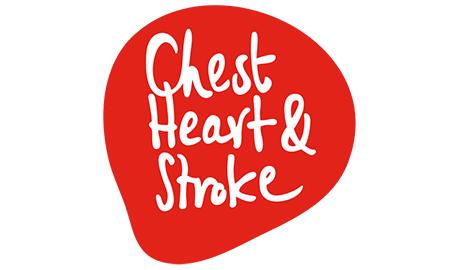The Benefits Of Gardening For Cardiovascular Health
Heart Health / ConservationAs the days have gradually become brighter and warmer, many of us may be noticing our gardens are also beginning to spring back to life. However, after a long winter, our patios and flower patches might need a little love and attention to get them spruced up in time for Summer. Milder weather and longer days provide the perfect opportunity to get outside and enjoy everything nature has to offer while doing a spot of gardening.
Gardening can be a rewarding hobby, but did you know it also provides numerous health benefits? Relaxation, stress relief, and boosting your physical activity levels are just a few of the perks that come with planting your own garden, and amazingly, it may also help boost your heart health. Some research has shown that among adults aged 65 years and older, gardening is associated with better Cardiovascular health status, including lower odds of diabetes.
In this blog post, we will explore the link between gardening and cardiovascular health and the ways in which gardening can help your heart. Plus, find out more about our upcoming charity plant sale, where you can pick up some brilliant bargain plants to give your garden a new lease of life, while supporting our work at NI Chest Heart and Stroke caring for people affected by heart disease!
What is cardiovascular health?
Cardiovascular health refers to the health of the heart and blood vessels. Cardiovascular diseases (CVD) are a group of conditions that affect the heart and blood vessels, including coronary heart disease, heart attacks, heart failure, and stroke.
Over 176,000 people in Northern Ireland – or 9.3% of the population - are on registers for circulatory conditions, including stroke and 21% of all deaths here last year were caused by these illnesses.
Gardening and cardiovascular health
Any seasoned gardener will be able to tell you that a day in the garden is often more taxing than a day in the gym! The physical demands of gardening, such as digging, planting, weeding, and pruning, can act as a moderate intensity workout, getting you moving, working a range of muscles and increasing your heart rate. Regular physical activity has been shown to reduce the risk of developing Cardiovascular Diseases.
The benefits of being active include:
- It helps to control your blood pressure
- It reduces bad cholesterol and increases good cholesterol
- It helps control your blood glucose level
- It contributes to maintaining a healthy weight
- Better sleep
- Improved overall health and wellbeing
Gardening can also prove to be very relaxing and stress-reducing. While stress is not a direct risk factor for cardiovascular conditions, it does impact upon your health, particularly as many people cope with it by smoking, drinking too much alcohol and overeating. These can all increase your risk of developing high blood pressure and cardiovascular diseases. Gardening has been shown to have a positive impact on mental health, including improving mood, and decreasing symptoms of anxiety and depression.
Another way gardening can benefit cardiovascular health is through exposure to nature. Spending time in nature has been shown to have a positive impact on physical and mental health, including reducing blood pressure, heart rate, and stress hormones.
Tips for gardening for cardiovascular health
Here are some of our top tips if you’re planning to get out in the garden this season:
- Start slowly: If you're new to gardening, start with small tasks and gradually increase the intensity and duration of your gardening activities. Rome wasn’t built in a day! Start off with a few potted plants and see how you get on before rushing out to buy tonnes of seeds, bulbs, pots and equipment or overwhelming yourself and burning out.
- Take care lifting and laying: Make sure you use proper lifting and bending techniques to avoid injury when lifting and carrying items such as pots or compost bags. If you have problems with your mobility, try working with smaller plants and pots at a table. You can also buy smaller bags of compost that are easier to lift and move around.
- Take breaks: Take regular breaks to rest and hydrate. Once you’re in the gardening zone it can be difficult to stop, but make sure you don’t over exert yourself.
- Safety first: Make sure you have the right kit and protective clothing to keep you safe, such as gardening gloves for handling prickly thorns, eye goggles if you are mowing or chopping, and good shoes to look after your feet. Be careful when using tools, and while it might not often seem necessary thanks to the Northern Irish weather, make sure to apply sun cream when heading outside – even when it isn’t hot or sunny, your skin can still be at risk of damage from UV rays!
- Mix up your activities: Mix up your gardening activities to target different muscle groups and avoid repetitive strain injuries. Split your jobs up into smaller steps and do a little at a time, day by day, and eventually your garden will be glowing with life!






























































